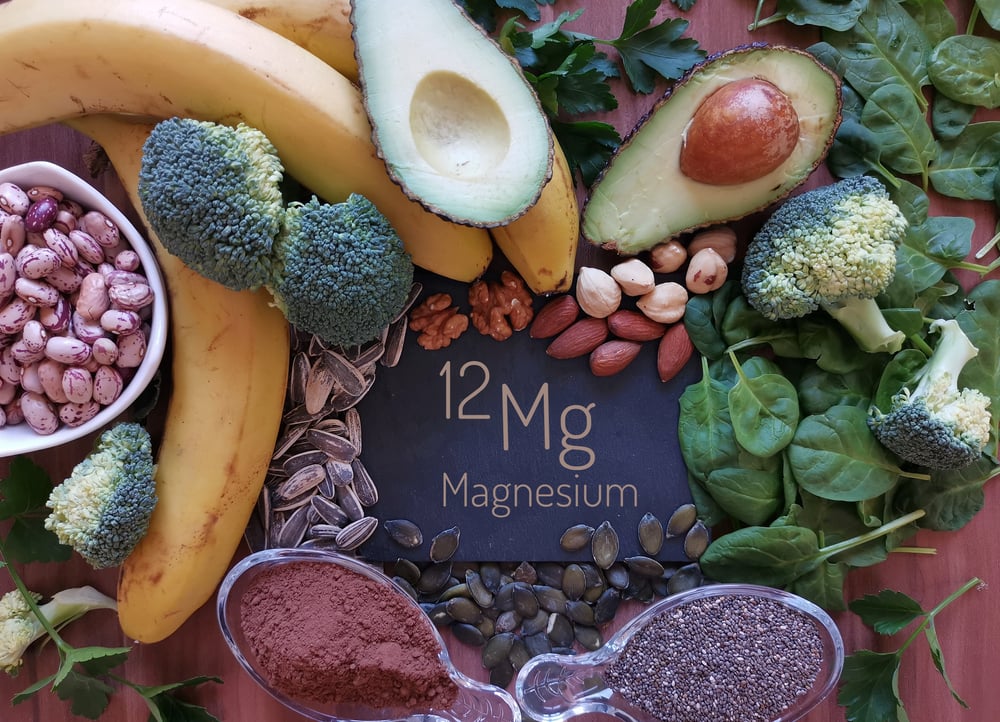Introduction
Magnesium is an essential mineral that plays a key role in many bodily functions. It is involved in over 300 biochemical reactions in the body, making it one of the most important minerals for sustaining life. Magnesium is essential for maintaining a healthy heart, strong bones, and a balanced mood. It also helps to regulate blood sugar levels and blood pressure. A deficiency in magnesium can lead to a number of health problems, including anxiety, depression, fatigue, and muscle cramps.
What Role Does Magnesium Play in Your Body?
Magnesium is a mineral that plays an important role in many bodily functions. It is involved in energy production, DNA synthesis, and muscle contraction, among other things. Magnesium is found in a variety of foods, such as green leafy vegetables, nuts, and whole grains. It is also available in supplement form.
Research suggests that magnesium may have a range of health benefits, such as reducing blood pressure, easing migraine headaches, and improving heart health. However, more research is needed to confirm these effects.
If you think you might be deficient in magnesium, talk to your doctor. They can order a blood test to check your levels and recommend the best course of treatment.
Why Is Magnesium Deficiency So Common?
Magnesium is an essential mineral that is involved in over 300 biochemical reactions in the human body. Despite its importance, magnesium deficiency is extremely common, with an estimated 80% of the population being deficient in this vital nutrient.
There are a number of reasons why magnesium deficiency is so common. One major reason is that magnesium is largely found in unrefined foods, which many people avoid in favor of processed foods. Additionally, magnesium is often depleted by common medications, such as birth control pills and antacids. Stress and certain medical conditions can also lead to magnesium deficiency.
If you think you may be deficient in magnesium, it's important to talk to your doctor. Magnesium deficiency can lead to a number of health problems, such as anxiety, depression, headaches, and muscle cramps. Luckily, magnesium deficiency is easily treated with supplementation.
The Symptoms of Magnesium Deficiency
Magnesium is an essential mineral that plays a role in many important functions in the body. Unfortunately, magnesium deficiency is quite common, especially in developed countries where dietary habits are often poor.
Magnesium deficiency can cause a wide variety of symptoms, ranging from mild to severe. Some of the most common symptoms include muscle cramps, fatigue, anxiety, and irregular heartbeat. If you suspect that you may be magnesium deficient, it's important to see a doctor for a blood test to confirm.
If you are magnesium deficient, there are a few different ways to treat it. You can take magnesium supplements, eat foods that are high in magnesium, or use a topical magnesium cream. With treatment, the symptoms of magnesium deficiency should improve.
The Benefits of magnesium Supplementation
Magnesium is an important mineral that plays a role in many different bodily functions. It is involved in energy production, protein synthesis, and nerve function, among other things. Due to its importance, many people choose to take magnesium supplements in order to ensure they are getting enough of this vital nutrient.
There are a number of benefits associated with magnesium supplementation. For one, it can help to improve energy levels and reduce fatigue. Additionally, magnesium can help to promote muscle growth and recovery, making it ideal for athletes and bodybuilders. It can also help to relieve anxiety and improve sleep quality.
If you are considering taking magnesium supplements, be sure to speak with your doctor first to ensure they are right for you.
Magnesium rich foods
There are a variety of foods that are rich in magnesium. Magnesium is an important mineral for the body, and it is involved in many different processes. Some of the foods that are rich in magnesium include leafy green vegetables, beans, nuts, and whole grains.
Getting enough magnesium in the diet is important for maintaining good health. Magnesium deficiency can lead to a variety of health problems, including high blood pressure, heart disease, and type 2 diabetes.
If you are interested in increasing your magnesium intake, there are a few simple ways to do so. Adding magnesium-rich foods to your diet is a great way to get more of this important mineral. You can also take magnesium supplements if you feel you are not getting enough from your diet
Conclusion
In conclusion, magnesium is the most important mineral in your body because it is necessary for many vital processes, including energy production, muscle contraction, and nervous system function. It is also involved in over 300 biochemical reactions in the body. A magnesium deficiency can lead to a variety of health problems, so it is important to make sure that you are getting enough magnesium in your diet.










